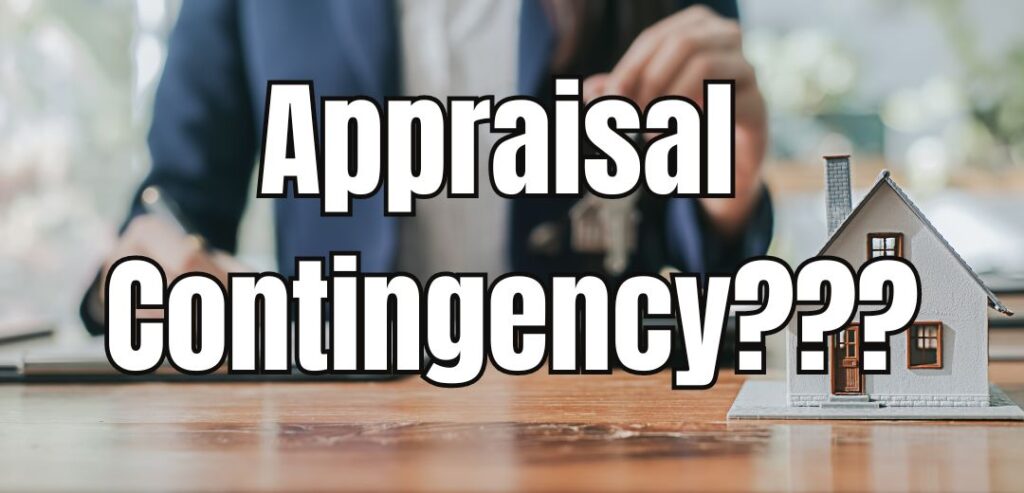Buckle up, real estate aficionados! 🏠 It’s me again, Cori, your trusty guide to the wild world of home buying, ready to unravel the mysteries of appraisal contingencies.
Get comfy, this blog is like a cozy home – a bit lengthy, but worth every word, especially with the magic keyword: appraisal contingency. Let’s dive into the real estate rabbit hole!

When you’re immersed in the process of negotiating your home purchase, you’ll inevitably encounter contingencies and waivers from various directions. It’s imperative for both buyers and sellers to invest time in thorough investigation to ensure the transaction aligns with everyone’s expectations.
Enter the appraisal contingency clause: This provision offers you, the buyer, the valuable opportunity to gracefully step away from the deal if the property’s appraisal value falls below the agreed purchase price at the time of closing. In essence, it shields you from the risk of overpaying for a property, sparing you from the disappointment of feeling like you’ve invested top dollar in a less-than-ideal location. On the seller’s end, there’s a natural inclination to aim for the highest possible sale price for their cherished property.

the concept of the appraisal waiver: This document empowers buyers to bypass the appraisal process altogether and proceed directly to purchasing the property. If you’ve found your dream home and the price isn’t the determining factor, opting for an appraisal waiver can be a strategic move to secure your ideal property swiftly.
But, buyer beware: Should the appraisal value prove elusive, ensure your finances are up to the challenge. Sellers, here’s a reality check; If you accept an appraisal contingency waiver and the sale falls short of the appraised value, your lender may hesitate to finance the agreed-upon amount. In such a scenario, sellers might need to reconsider their asking price or explore alternative options.

Adding a twist to the narrative, some mortgage lenders insist on an appraisal, regardless of whether the buyer has secured an appraisal contingency. This serves as a safeguard, akin to having a backup referee in a game, ensuring that the property’s value aligns with the loan amount.
The interplay between appraisal contingencies and waivers resembles a carefully choreographed dance. An appraisal contingency acts as a cautious friend, double-checking your financial commitments, while an appraisal waiver serves as a golden ticket to the seller’s heart, particularly in a competitive real estate market.
However, both parties must acknowledge the associated risks. Buyers must be financially prepared for potential fluctuations in the appraisal value, while sellers should be open to negotiation if the appraisal value falls short of expectations.
Navigating these intricate real estate decisions requires understanding, guidance, and perhaps a touch of humor. Consult with a knowledgeable real estate agent, such as myself, to navigate through this journey with confidence.
Armed with your real estate agent – and be sure she’s a good one. Hint Hint…. ME ME ME! you’re equipped to navigate the complexities of the appraisal contingency with finesse and clarity.
The appraisal contingency plays a pivotal role in the home buying process, offering essential protection and assurance for both buyers and sellers.
For buyers, it provides a valuable opportunity to step away from a deal if the property’s appraisal value falls short of the agreed purchase price, safeguarding against potential financial strain. Similarly, sellers benefit from the contingency by ensuring that buyers are committed to a fair valuation of their property.
Although the appraisal contingency introduces additional considerations into the transaction, it also promotes transparency and fairness, fostering a sense of trust between both parties.
By fully understanding the implications and potential outcomes associated with the appraisal contingency, buyers and sellers can approach negotiations with confidence and clarity.
So, if you were a buyer in today’s market, would you or would you NOT utilize an appraisal contingency????


